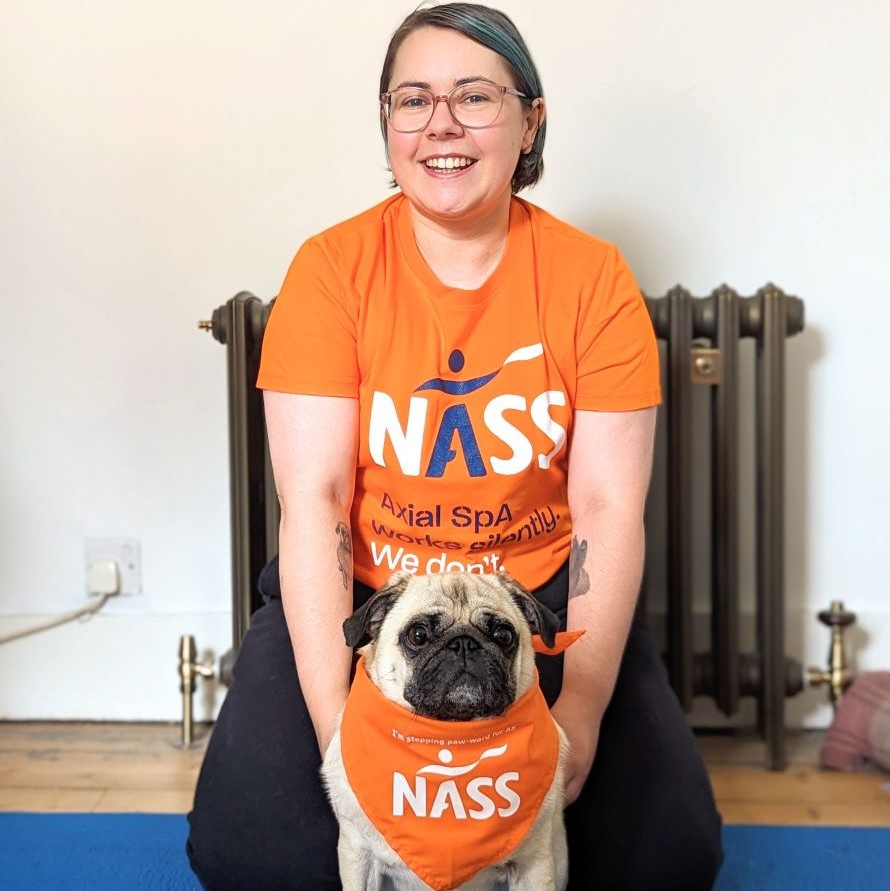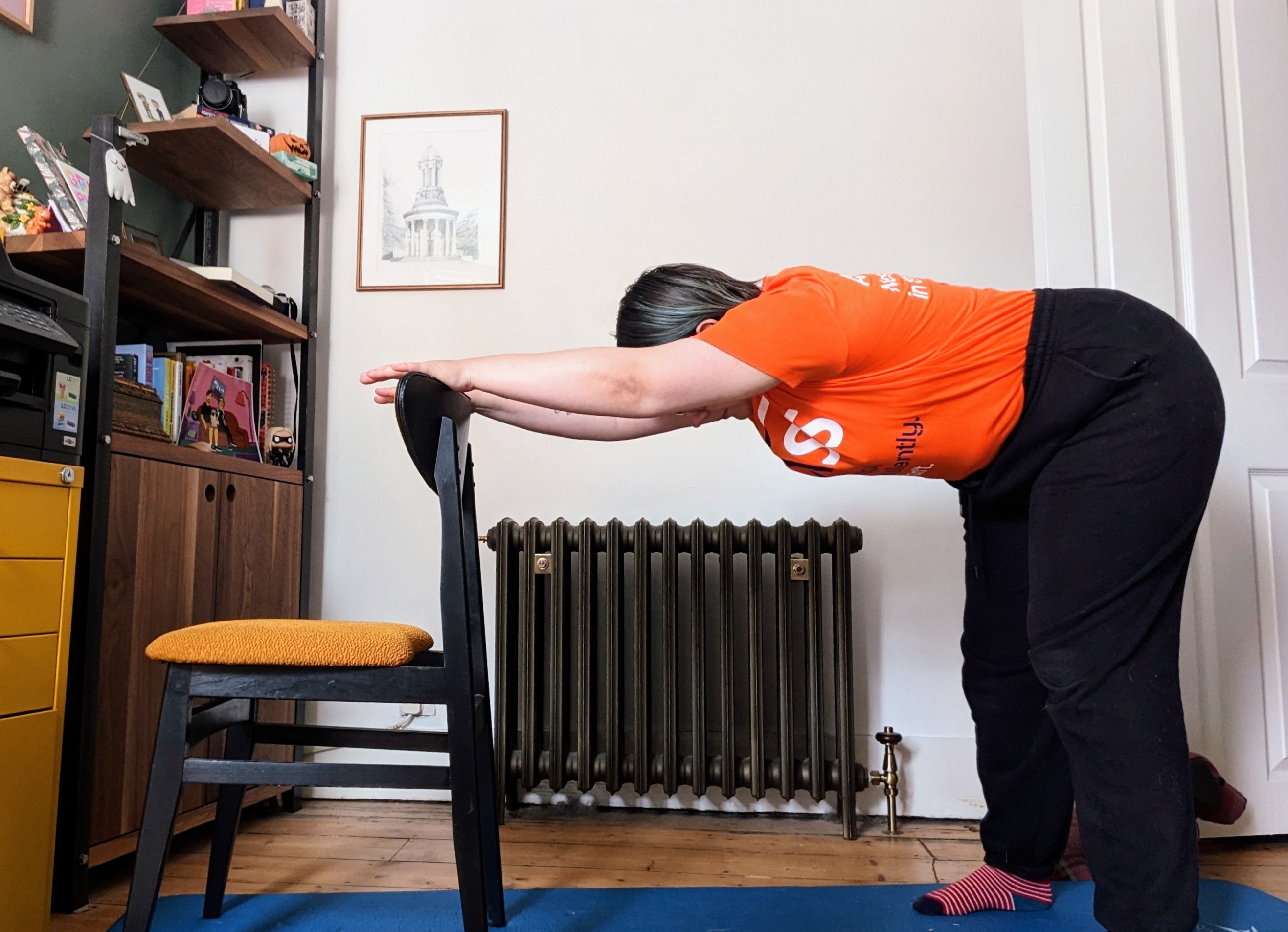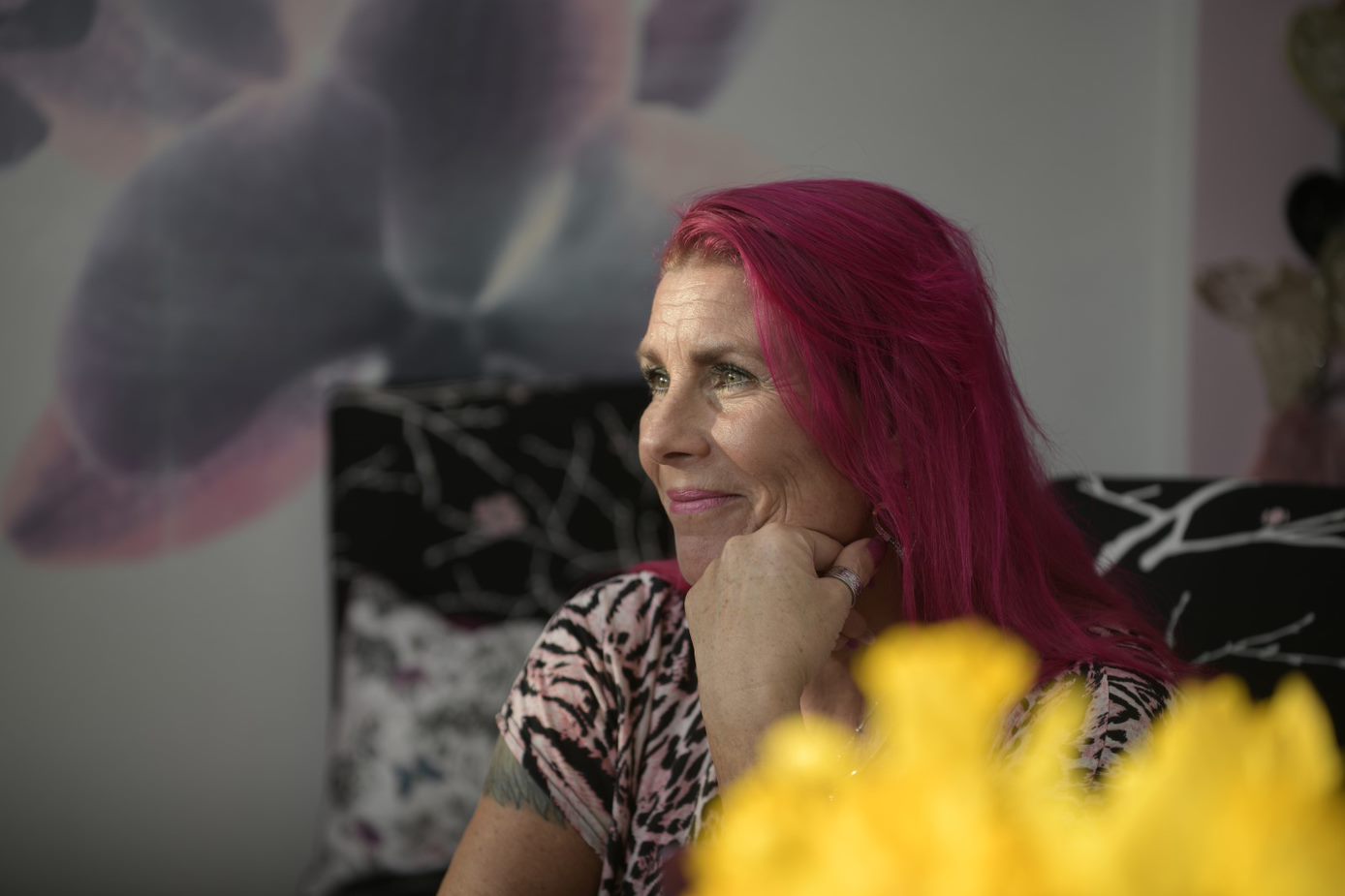
Georgie's story
“It has made a huge difference to me in the way I manage my axial SpA.”
Read Georgie's story
Want to move more for your AS? Join Stretch-tember in September 2024! Whether you'd prefer a very gentle session or something more challenging, there is something for everyone.
Watch the video below to find out more.
Thank you everyone who took part in Stretch-tember 2023. Over 150 people signed up and raised £800 for NASS. Read the stories of people who stretched more for their AS and fundraised for NASS in 2023

“It has made a huge difference to me in the way I manage my axial SpA.”
Read Georgie's story
“I know and understand how valuable movement is, so I am stretching with NASS for Stretch-tember.”
Read Sarah's storyYour support for NASS and people with axial SpA is more critical than ever:
Axial SpA is an inflammatory condition of the spine and joints. Inflammation where muscles attach to the bones, causes extreme pain. It’s an invisible and often misdiagnosed condition. Often leaving people feeling powerless, in increasing pain and extreme exhaustion. If left untreated, it can permanently fuse bones together.
NASS is the only charity in the UK dedicated to supporting people with axial SpA. NASS doesn’t receive any statutory funding. We rely on your kindness and generosity, and other people like you, to help us transform the diagnosis, treatment and care of people with axial SpA and help more people live well with the condition sooner.
If you have any questions about Stretch-tember, please email fundraising@nass.co.uk or call 020 8741 1515 and press option 2.
1 in 200 of the adult population in the UK have axial SpA (AS). That's twice as many as multiple sclerosis and Parkinson's disease.
Axial SpA (AS) is a condition that affects young people. Symptoms start late teens to early twenties, with the average age of onset being 24.
The current average delay to diagnosis from when symptoms start is 8.5 years, by which irreversible damage to the spine may have occurred.
59% of people with axial SpA (AS) report experiencing mental health problems compared to 25% of those with musculoskeletal conditions overall.